Tolerance of intolerance is cowardice.
― Ayaan Hirsi Ali
It is not necessary that people be wicked, but only that they be spineless.
― James Baldwin, The Fire Next Time
Imagine the following. A playwright writes a one-man show about a Catholic IRA terrorist, a suicide bomber. Speaking directly to the audience, the actor/suicide bomber – let’s call him Brendan – reconstructs his mission. He approaches his target – a military checkpoint – but, at the penultimate moment, sees a Protestant woman and her two children enter his field of vision. Suddenly, Brendan’s conscience recoils. He cannot press the button. British soldiers, he rationalizes, are fair game; civilians are not. When he returns home, humiliated and disgraced – the whole point of terror being to terrorize the innocent – his handlers dispense summary judgment.
It’s a provocative concept, not least because such a scenario would force us to rethink our reflexive frames of reference. In acknowledging the innocence of potential victims, the suicide bomber himself acquires an unexpected humanity. Protestants and Catholics might resent this attempt to humanize the Other, but isn’t that what good theatre should do: upset preconceptions, stimulate discussion? Isn’t one of the major benefits that free speech confers the right to table ideas that remove the guardrails of our comfort zones?
As it happens, just such a mind-bending play was written a few years ago by Canadian playwright Christopher Morris: The Runner. Its sole character, an orthodox Jew named Jacob, is a volunteer member of ZAKA Search and Rescue, the UN-recognized non-governmental Israeli agency that, among its many services, helps identify victims of terrorism (Jews, Muslims, Druze, Christians, anyone). In Morris’ play, Jacob, arriving at the scene of a probable terror attack, makes an instinctive decision to treat the presumed perpetrator, a wounded Palestinian woman, instead of the Israeli soldier she may have killed. In doing so – administering CPR and mouth-to-mouth resuscitation to save her life – he obeys his conscience but violates ZAKA’s express purpose, service to victims.
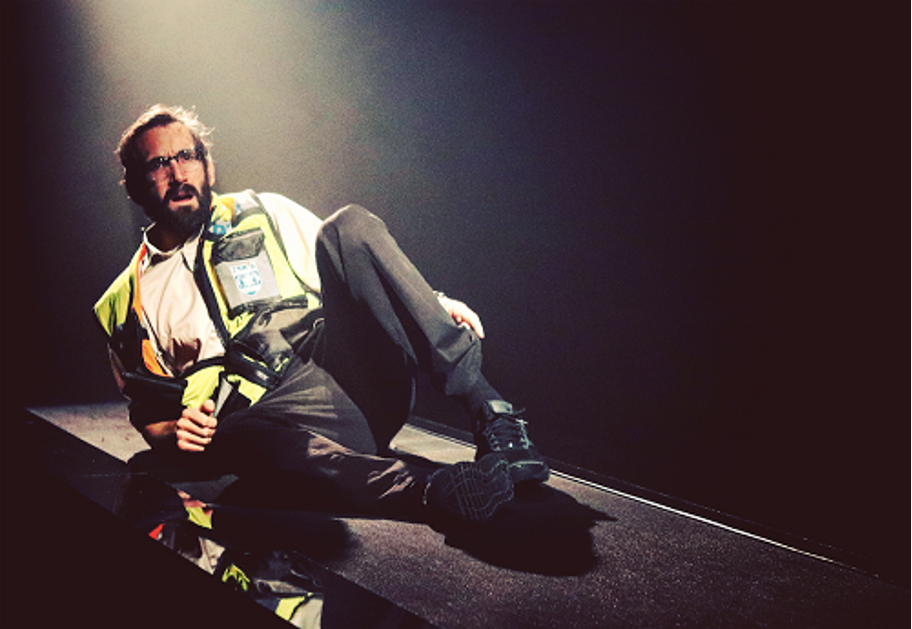
Again, it’s a controversial premise, one that might offend Jew and Arab alike. But Morris is not particularly interested in taking a political side in the Israeli-Palestinian conflict. He’s more focussed on locating the basic human impulse, examining how it behaves under pressure and what the consequences are. A non-Jew, Morris travelled to Israel four times in the early to mid-2010s and spent many days embedded with some of ZAKA’s thousands of volunteer members. In short, he did his homework.
As Canadian drama goes, The Runner has enjoyed an enviable life, including successful productions at no fewer than five theatres and glowing reviews. The Globe and Mail said “it will make your heart soar.” Critic Lynn Slotkin called it an “emotional, exhausting, eye-opening, gripping piece of theatre.”
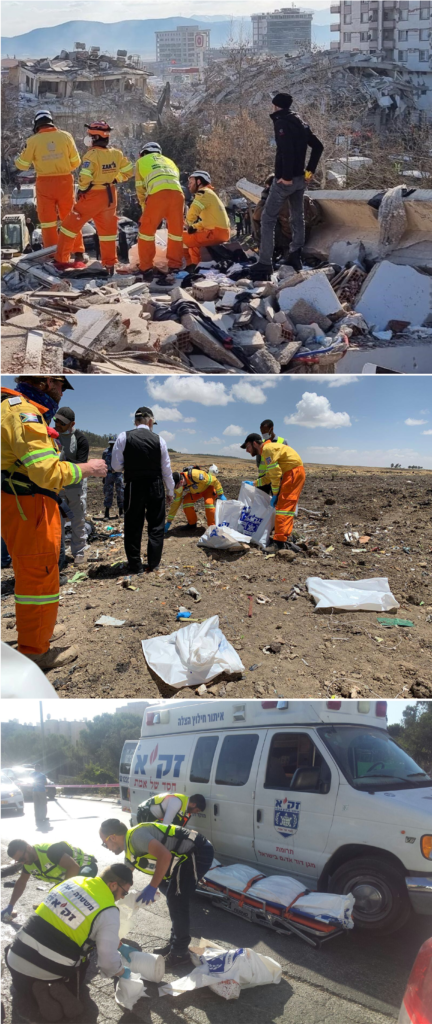
More to the point, not a single production of The Runner, to my knowledge, stirred even a whisper of social protest. No one suggested that all Palestinians had been effectively demonized because the central Palestinian character in the script may have murdered the soldier. No one maintained that all Jews must be racist because most of the body parts that ZAKA is charged with collecting belong to Jewish victims of terror. No Arabs voiced outrage at the depiction of a Jew driven by ethical principles. No Jews decried the implicit suggestion that Israelis critical of Jacob’s choice are somehow catalysts for hate.
The play was deemed strong enough for two West Coast arts organizations – Victoria’s Belfry Theatre and Vancouver’s PuSh Festival – to add it to their programs for 2024. The Belfry production was slated for March. PuSh had scheduled it to run January 24-26 at Simon Fraser University’s Goldcorp Centre for the Arts, in tandem with Dear Laila, an installation piece by U.K.-based Palestinian graffiti artist Basel Zaraa. The digital installation is a miniature model of Zaraa’s childhood home in Yarmouk, a refugee camp just south of Damascus, to which his grandparents fled during Israel’s 1948 War of Independence. The home, and much of the camp, were destroyed during Syria’s vicious civil war, which began in 2011 and, after an estimated 600,000 deaths, continues today. One by one, audience members are invited to gaze at the model home and examine its contents, totems of Zaraa’s lost world.
In Victoria, anti-Israeli protesters petitioned The Belfry theatre to cancel its production of ‘The Runner’, spray-painting its building with ‘Free Palestine’ graffiti. Soon after, the theatre’s leadership caved.
But then came October 7th, when several thousand Palestinian terrorists – members of Hamas and Islamic Jihad as well as ordinary residents of Gaza – poured across the border, butchering, raping, beheading and incinerating approximately 1,200 Israelis and kidnapping more than 200 others, including children. It was the country’s largest single-day death toll since the Holocaust. And then came the predictable Israeli response, a ferocious air and ground campaign designed to destroy, once and for all, Hamas’ military capability and its billion-dollar network of underground tunnels. In the process, thousands of Gazans have been killed, including innocent civilians.
The conflict, in turn, has ignited a global firestorm of anti-Semitism. In Canada, Jewish businesses and institutions have been vandalized, protests have been held in cities and universities, civic officials have turned their backs on long-practised Jewish festivals, and there have been shootings, physical violence and intimidation. In Victoria, anti-Israeli protesters petitioned The Belfry to cancel its production of The Runner, spray-painting its building with “Free Palestine” graffiti. Soon after, the theatre’s leadership caved. “Given the current conflict in the Middle East,” it declared in an insipid statement, “this is not the time for a play which may further tensions among our community.”
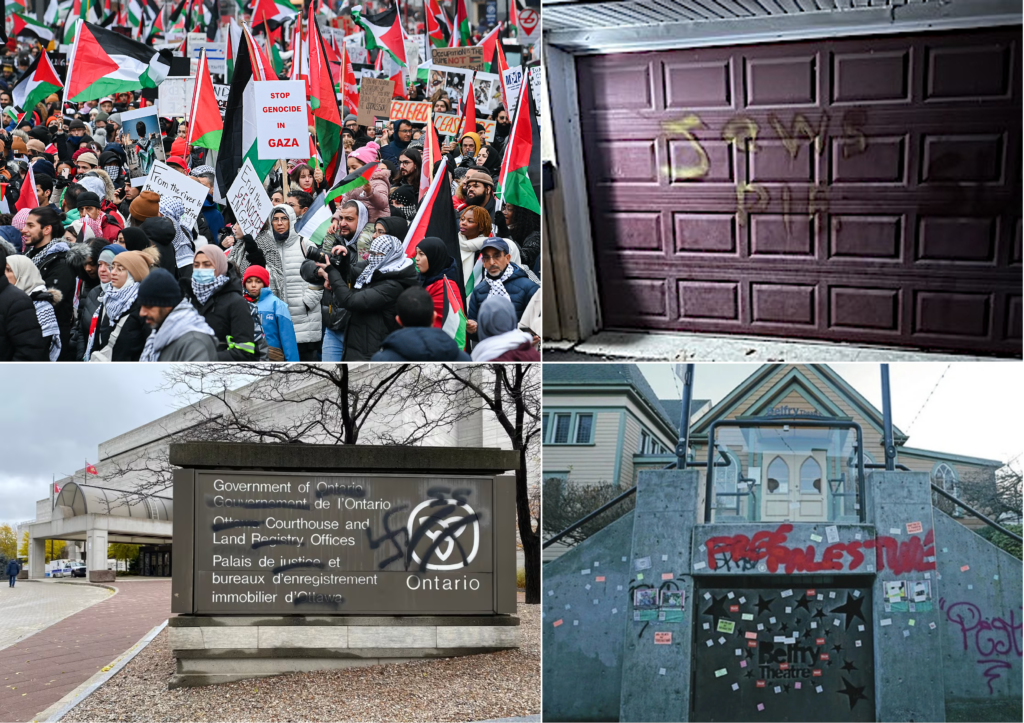
Actually, just the reverse is true. This is precisely the time when a play like The Runner is needed, one that serves to remind us of what we have in common and appeals to the better angels of our nature. Instead of honouring its avowed commitment to mounting works that generate dialogue, The Belfry took the deplorable path of least resistance, opting to censor the dialogue. So much for windy mission statements. And not a good look for Canadian theatre in general.
Across the water in Vancouver, the PuSh festival faced an obvious dilemma: to submit, like The Belfry, to pro-Palestinian pressure and cancel the production, or PuSh on, against the tide. Initially, the organization resisted, declaring that The Runner would go ahead as scheduled, alongside Dear Laila.
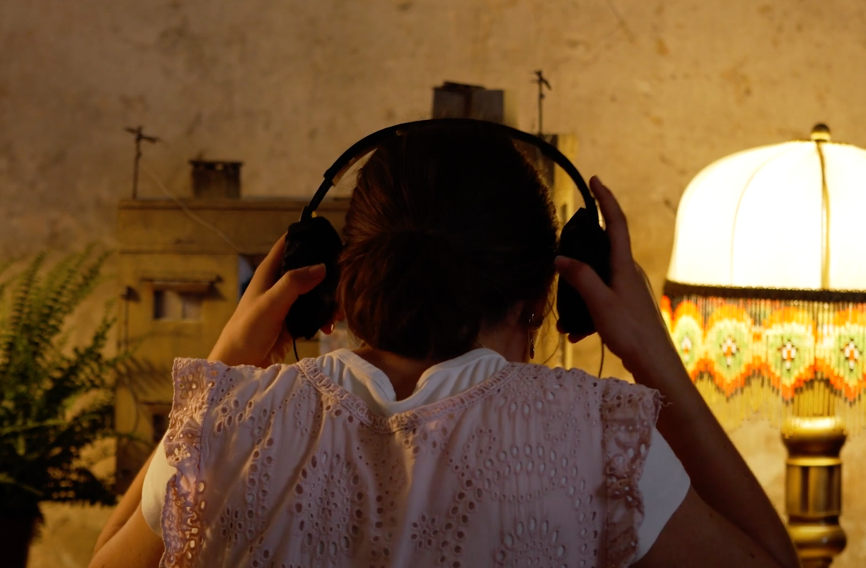
Its director of programming, Gabrielle Martin, took to the CBC airwaves to insist that the play provided “opportunities to better understand our shared humanity.” Elsewhere, she maintained that the festival was dedicated to offering work that “offers new perspective, catharsis and communion.” Michael Boucher, a cultural programs director at Simon Fraser, seconded the thought, stating “I’m behind it.”
Brave rhetoric, but ultimately empty.
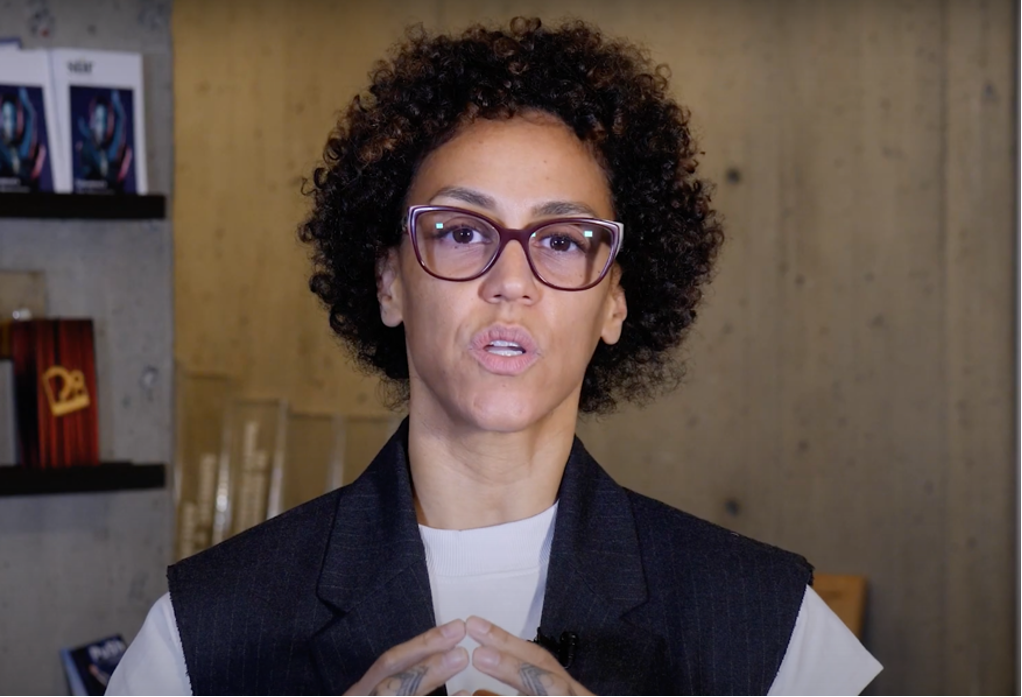
Perhaps this year’s incarnation should be called the PuLl Festival. Because when PuSh came to shove, Martin and her colleagues also capitulated, cancelling The Runner. The coup de grace, I suspect, was a threat from Zaraa himself: unless Morris’ play was withdrawn, he’d pull his own show. In a note to festival organizers, Zaraa played the victim card, explaining that he had created the installation for his daughter, Laila, to tell “the story of our family’s ongoing trauma and struggle as Palestinians exiled by Israel, starting with the massacre in our village of Tantura in Palestine, in 1948.”
I’ll get to the “massacre” in a moment, but it’s worth first noting a few salient details Zaraa’s account strangely omits. The 1948 war that sent his grandparents into exile began after six Arab nations refused to accept the United Nations’ proposed partition plan for British-mandate Palestine, and instead attacked the fledgling state of Israel the morning after Israel’s independence was proclaimed on May 14, 1948. As many as 700,000 Arabs subsequently left, but most of those who did had been encouraged to do so in radio broadcasts by the Arab-Palestinian Higher Executive.
On May 15 – the day the war began – Haj Amin al-Husseini, aka the Grand Mufti of Jerusalem, appealed to Arabs in Palestine to leave, because “the Arab armies were about to enter and fight in their stead.” His appeal, the London Economist reported, “was the most potent factor [in their flight]. It was clearly intimated that Arabs who remained in Haifa and accepted Jewish protection would be regarded as renegades.” Al-Husseini was an exterminationist anti-Semite, having spent much of the Second World War in Berlin as a guest of the Nazis, meeting personally with Adolf Hitler and later helping recruit Bosnian Muslims into a Waffen SS Division, then fleeing back to the Middle East after the war ended.
As for Zaraa’s claim of massacre at Tantura, widely repeated in pro-Palestinian propaganda – it’s simply a lie. There was no such massacre. Not a single document or record from the period – British, Israeli or Palestinian – mentions any atrocity there.
Similarly, in his 1973 memoir, former Syrian Prime Minister Khaled al-Azm confessed: “We brought disaster upon a million Arab refugees by inviting them and bringing pressure on them to leave.” Even Mahmoud Abbas, currently in the 20th year of the four-year term to which he was elected president of the Palestinian Authority in 2005, previously acknowledged the point, writing in 1976: “The Arab armies entered Palestine to protect the Palestinians from the Zionist tyranny, but instead they abandoned them, forced them to emigrate and to leave their homeland, imposed upon them a political and ideological blockade and threw them into prisons similar to the ghettos in which the Jews used to live in Eastern Europe.”
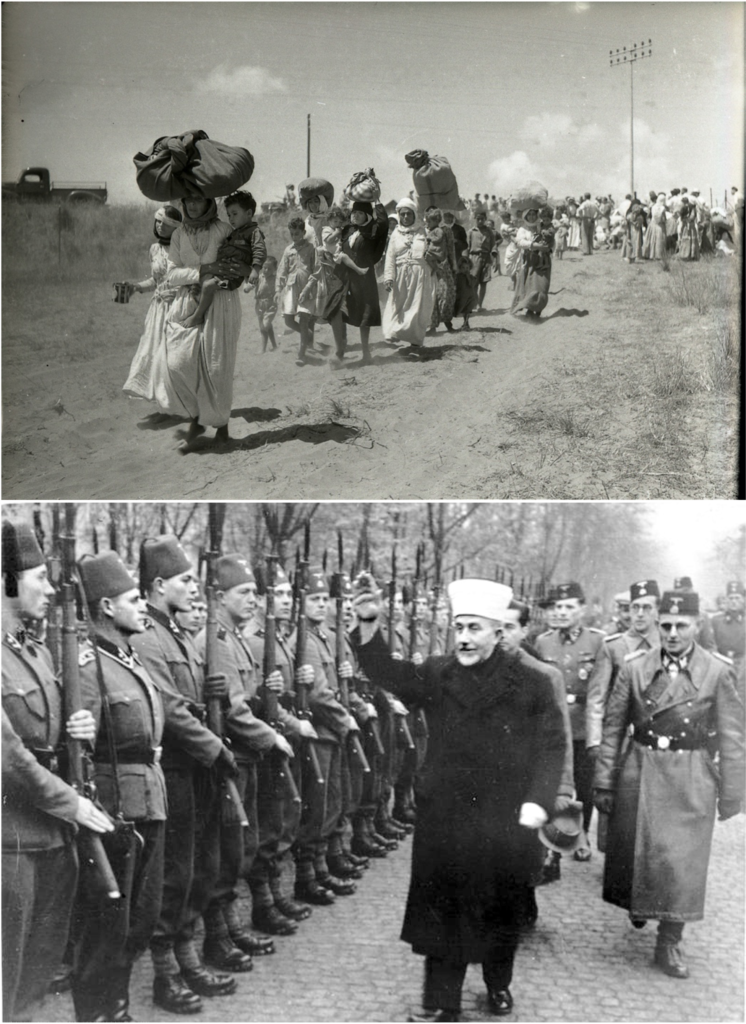
As for Zaraa’s claim of massacre at Tantura, widely repeated in pro-Palestinian propaganda – it’s simply a lie. There was no such massacre. Not a single document or record from the period – British, Israeli or Palestinian – mentions any atrocity being committed at Tantura, which lies on the Mediterranean coast. Indeed, the first time the allegation surfaced was in 1998, in a master’s degree thesis submitted by Israeli student Theodore Katz. He cited evidence based on interviews with former Tantura villagers that as many as 250 unarmed Arabs had been deliberately killed by the Israel Defense Forces’ Alexandroni Brigade – after they had surrendered. If true, such an act would indeed be a horrific war crime.
But when an Israeli newspaper published the claim, surviving members of the brigade promptly sued Katz. During the trial process, Katz confessed that his thesis was fiction; he had concocted the entire libellous narrative. Katz had interviewed some former villagers, but none had claimed any massacre occurred. An investigation by a Haifa University panel later found that Katz had “gravely” falsified his research in 14 different places. Not entirely surprisingly, Katz’s thesis adviser was Ilan Pappe, an academic notorious for his efforts to delegitimize the Zionist enterprise. The libel of the massacre has done considerable damage to Israel’s reputation and is still circulated as fact in online sources such as Wikipedia.
Zaraa’s letter to the PuSh Festival registered additional complaints. One was that “Palestinians appear in The Runner almost exclusively as perpetrators of violence.” This, too, is false: Jacob is resolutely agnostic about whether the young woman he treats is actually guilty of the crime. In effect, his valiant effort to save her life constitutes a critique of the almost automatic assumption of her guilt. Either Zaraa does not understand Morris’ play or, more likely, he is being disingenuous, to score political points.
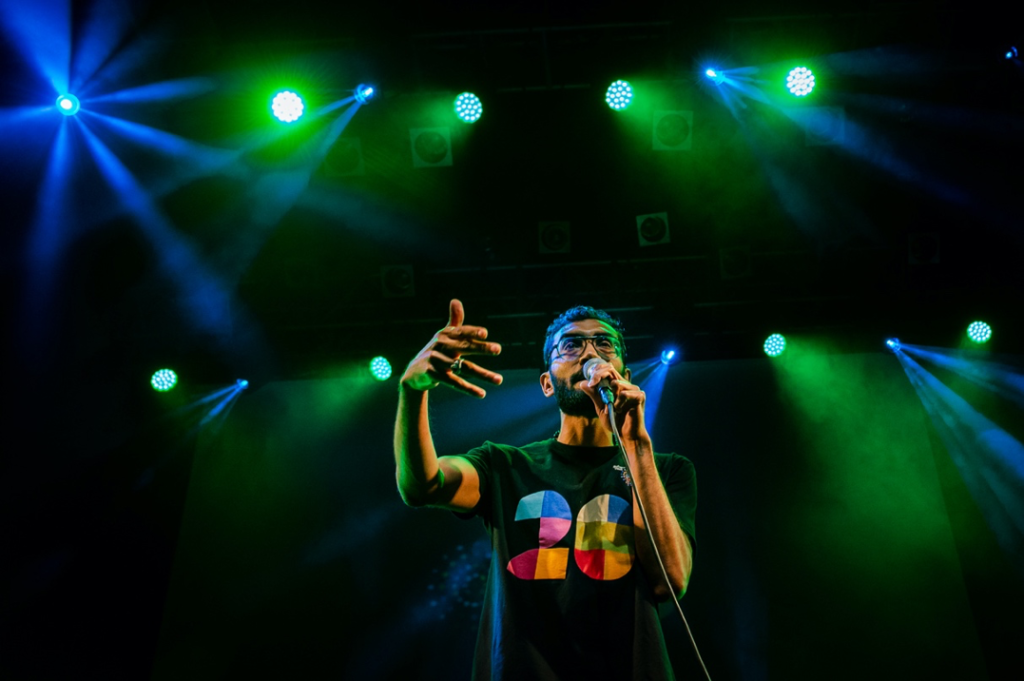
Another Zaraa grievance was that “while the Israeli characters are vividly portrayed, the Palestinian characters don’t even have names, and barely speak.” In fact, some of the most memorable characters in modern fiction are nameless, among them Joseph Conrad’s protagonist in Heart of Darkness, the father and son duo in Cormac McCarthy’s The Road, the central figure in Philip Roth’s Everyman, and the young African-American hero of Ralph Ellison’s Invisible Man. A nameless character in a Jewish play often symbolizes the many nameless victims of the Holocaust.
Does Zaraa know that Morris was not attempting to do something similar for Palestinians? It is their very anonymity that makes these voices more powerful, renders their predicaments universal, and confers remembrance. And, by the way, the dead Israeli soldier in Morris’ play has no name, either.
In its own lame attempt to defend the indefensible, the PuSh Festival also reached for bizarre justifications, maintaining that Zaraa’s piece was based on “lived experience” while Morris himself had “no religious or cultural ties to the region.” If Morris were a Jew and had spent three years living on a kibbutz – or in a settlement in Samaria – would that have made his “lived experience” more acceptable? And of course, Zaraa himself has no “lived experience” of Israel’s founding, knows nothing of what, if anything, went on in Tantura, of how and why many Arabs left Israel, or why many others chose to remain and gained full rights as Israeli citizens.
Now, just as in 1930s Germany, a Jewish theme, a Jewish writer, a mere connection to Israel, is at risk of being judged contaminated. And not only in the arts.
Morris himself, incidentally, took the high road, graciously accepting the cancellation and refusing to complain. He’s clearly a better man than I. I would have been outraged. The festival organizers chose a U.K.-based artist over a Canadian and a piece of propaganda over a calibrated work of ethical complexity. Let’s call this travesty all the things it transparently is: censorship of free speech, cowardice, a craven surrender to bullying, cultural and historical illiteracy, and, yes, anti-Semitism.
Even a play subtly, but implicitly, critical of Israel’s treatment of Palestinians, a play – it’s a very safe bet – that virtually no pro-Palestinian protester has either read or seen, is now deemed by our progressive cultural commissars verboten to produce. If you want to witness the decline of Western civilization in microcosm, look no further than The Belfry and PuSh, erstwhile champions of “dialogue” and “communion”.

Now, just as in 1930s Germany, a Jewish theme, a Jewish writer, a mere connection to Israel, is at risk of being judged contaminated. And not only in the arts. In mid-January, a dean at Montreal’s Concordia University warned students not to attend a rally to mark the 100th day of captivity of Hamas’ estimated 132 remaining Israeli hostages. In South Africa, the governing body of the national under-19 cricket team stripped its Jewish captain, David Teeger, of his rank in advance of the Cricket World Cup. In one London, U.K. suburb, a Jewish youth charity was forced to cancel an evening featuring British-Israeli soldier Levi Simon, who had been fighting in Gaza. In another, the local council scrubbed a Jewish exhibition that’s been held annually for 40 years. And in Vicenza, Italian police had to use water cannon to disperse mobs protesting the mere presence of Israeli kiosks at an international jewellery fair.
All of that in the space of seven days. These are small markers, to be sure, not hugely significant on their own. But they collectively form a pattern of indicia that testify to the moral sickness plaguing Western society.
Michael Posner is a Canadian journalist who has worked principally at Maclean’s Magazine and the Globe and Mail. His work now appears on Michael’s Substack at substack.com.
Source of main image (cropped and color-toned): “the empty theatre” by ztephen, licensed under CC BY-NC-SA 2.0.



